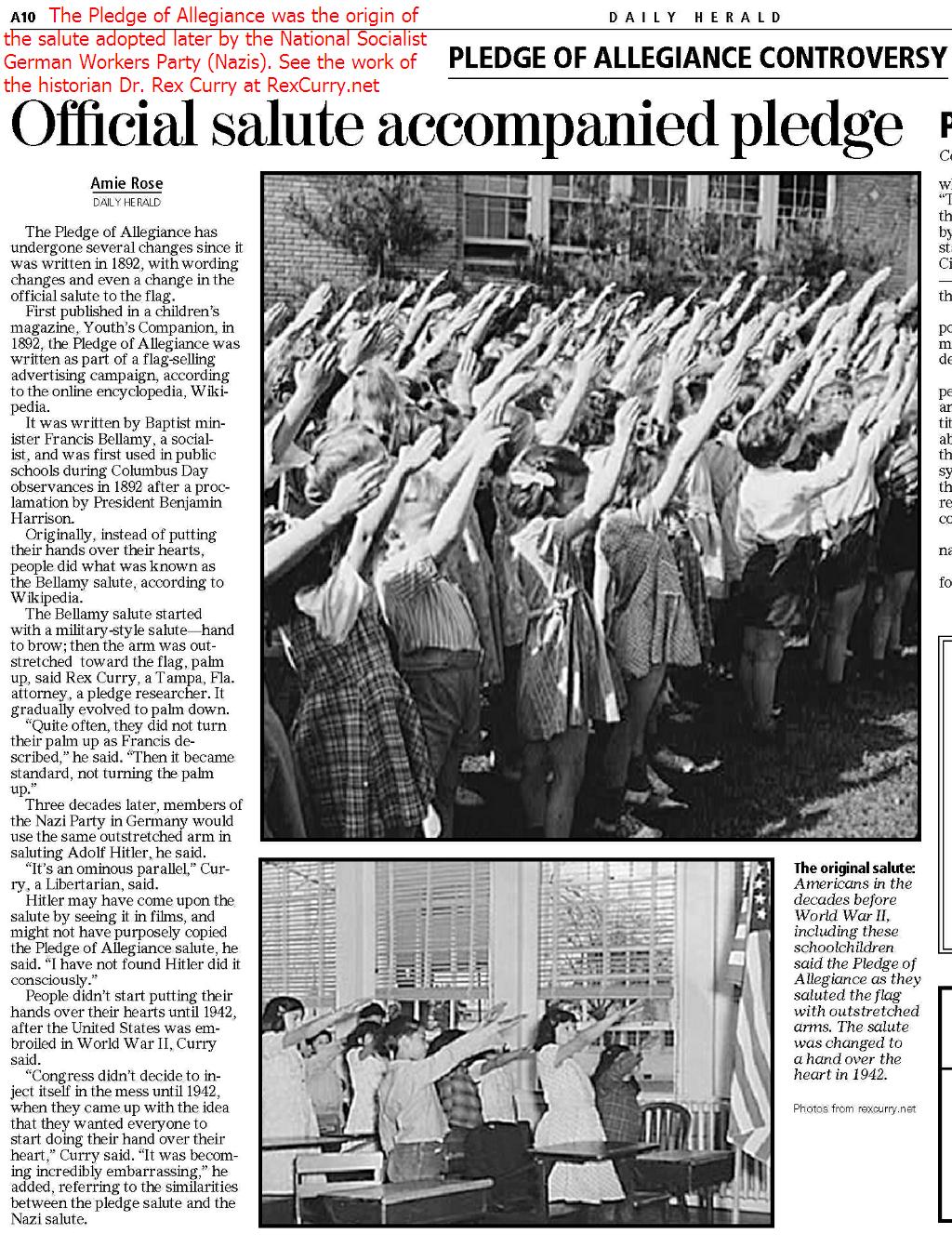Has anyone else every noticed how some politicians use a kind of facist looking salute when they take the oath of office here in Taiwan? I am sure it is unintentional and completely unconcious, but it’s weird nevertheless. No?
Read these comments below, if you have a moment, and see if they connect with what you have seen on TV or in the papers or in person here.
A recent TV news segment showed a newly elected politician in Tainan County taking an oath of office as he was sworn in as county commissioner. I have often wondered why many politicians in Taiwan use this old “fascist salute” as a way of taking an oath of office. Would it not be better for politicians in this democratic country to place their hands over their hearts or to raise their arms (or hands) straight up, and not at an angle as the fascists in Nazi Germany and Italy did during the Hitler period?
It is quite possible that Taiwan adopted this fascist salute from the Japanese who colonized this island for 50 years or so in the first half of the 20th Century. Having lived in Japan for five years before coming to Taiwan, I also saw this fascist salute used at sports events around that country, with nobody batting an eye (except for surprised Westerners from North America and Europe). Maybe it is time for Taiwan politicians to scrap this out-dated fascist salute and replace it with a hand over the heart or an arm held straight up.
Many Westerners, particularly Americans, assume that the fascist salute died with the defeat of the Nazis in World War II. But it’s alive and well all over the globe, and can be found in the most unlikely places, including, as seen by that photograph, here in Taiwan, too – where European history is not always clearly understood.
In Japan, where I lived in the early 1990s, all elementary, middle and high schools hold a “sports day” festival each autumn in which the classes compete among themselves in various races, etc. At the start of the ceremony, the students parade in front of all the teachers, parents and assorted local dignitaries. How surprised I was to see the kids in a TV news story about the sports day activities crisply salute the adults with their right arms rigidly extended as they marched by. A few adults actually returned the salute!
When I asked a Japanese friend about it he shrugged and told me it was simply an old tradition. However, a little research reveals that the salute in this instance dates back to the 1860s when Japan reformed its public schools and based them on those of Prussia, the strongest military power at the time. The fascist salute on sports day in Japan is one of the last vestiges of the militarism that once pervaded Japanese schools. Did that militarism’s body language also come to Taiwan with the arrival of the Japanese colonialists? And is some of that body language still being used today, albeit unconsciously and unknowingly? How will foreign countries perceive Taiwan when such photographs appear in overseas publications such as Time or Newsweek or even on local ROC international Websites?
To be fair, most Japanese schools have now dropped the salute nowadays, and it only exists now in the more rural and modernity-challenged regions of Japan. And not all Taiwanese politicians use this fascist salute when they take their oath of office.
According to historians, the salute itself was originated by the Romans and had been used by armies throughout history before Hitler and Mussolini appropriated it for their twisted ends. Should politicians in Taiwan be made aware of what they might be doing and try to adopt a new kind of salute when they take an oath of office? Or is this old fascist salute still appropriate in this day and age?

